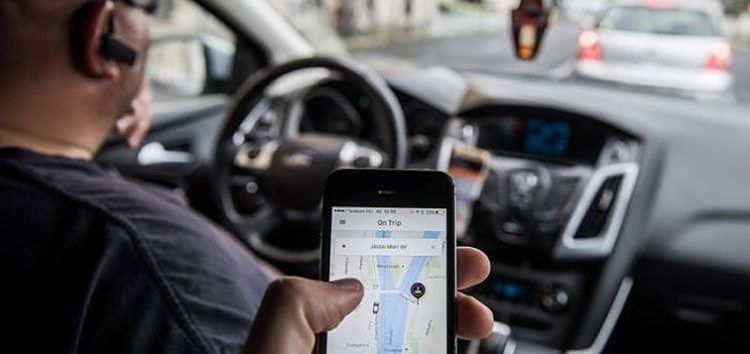"I support the Government's decision...", says Bolt Driver in Lagos State
Drivers of Bolt and Uber alongside the President of the Union of Professional App-based Workers weigh in on the new regulation put forward by Lagos State.

Lagos state is set to enforce new regulations on ride-hailing companies like Bolt and Uber.
The implementation, approved by the State Governor, His Excellency Babajide Olusola Sanwo-Olu, starts on August 20, 2020.
The Ministry of Transportation first issued the regulation in March on the operation of the bike operators in the e-hailing sector. But it has been met with outrage and mixed reactions.
Details of the new Lagos State regulation on ride-hailing companies
The ride-hailing (AKA e-hailing) companies with over 1000 drivers will pay an annual license fee of ₦25 million to continue operations. Subsequently, they will pay a renewal fee of ₦10 million.
While those ride-hailing companies with less than 1000 drivers will pay ₦10 million and ₦5 million in renewal fees.
For transport companies that own their own cars with employed drivers, the regulation may mandate them to pay ₦5 million. However, if their drivers exceed 50, they would be required to pay ₦10 million. Lagos State Government also expects to get a 10% service charge on the fee for each trip.
The new regulation further stipulates that;
- The vehicle must be new or at least less than 3 years old from 2020 which means 2017 car model upward.
- The capacity of the vehicle must not be less than 1.3cc, comply with the requirements of Road Traffic Law of the State and must be brought for inspection at least once a year.
- The e-hailing drivers obtain Lagos State Drivers' Institute (LASDRI cards) and a driver’s badge issued by the department of public transport.
- Designated waiting parks for the e-hailing drivers assigned by the commuter services of the state ministry of transport and the Lagos State.

Drivers of the ride-hailing companies protest
This new development has not gone down well with the e-hailing drivers.
Drivers have had to deal with other adjacent activities in the state like the partial blockage of the 3rd mainland bridge, a major bridge connecting the Lagos Island to the Mainland. Restricting movement along the bridge has increased traffic, thereby, leading to fewer trips.
The drivers insist that the state government is only after making money off them and not really about regulating for growth and order. Conversely, some of the riders told benjamindada.com that they are not bothered about the regulation on the ride-hailing companies they work with. They will remain unbothered for as long as it doesn't affect their cut from trips.
However, one key theme in our conversation with these drivers is that nearly all of them believe that the implementation of the regulation might be unrealistic. "Well, I support the Government decision only that some of what they are pushing for is unrealistic. It’s like they want to make money off the companies. I support them anyway, as long as my commission is not affected", Mr Kazeem, a Bolt Driver tells us.
I support the Government's decision—Bolt Driver in Lagos State
"Ah! It will affect us all, the drivers, the companies and the passengers. For example, me now I’ve not gotten my LASDRI card and that could put me out of business. I know the law is crazy and it’s not balanced because how on earth do they want people to get 2017 model car to use? I know if the company don’t deduct from drivers commissions, they’ll increase the passengers fair. This regulation has a great impact", says Mr Debo, an Uber Driver.
The extent to which the implementation will be pursued is unknown as we heard it is currently under review. Things might never remain the same with the e-hailing sector of the state, if things go on as announced.
The President of the National Union of Professional App-based Workers (NUPABW), Comrade Ibrahim Ayoade said, "What the Lagos state government is trying to do is revenue drive, not regulation. We had 5 meetings, Uber did not come to that meeting, Bolt did not come to that meeting. What I was expecting from Lagos state is to form a board of committee which will comprise app companies, driver-partners and the government representatives. These three stakeholders will now come out with a blueprint for the app industry. But that never happened."
Only time can truly tell if this will work for the sector and the State as a whole.
We are following up on this story.






